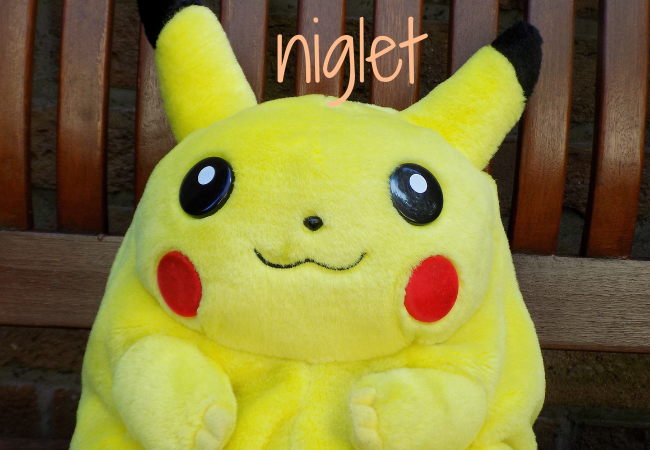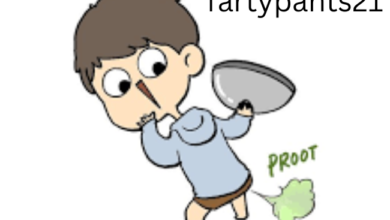Words hold power, capable of healing or harming, of connecting or dividing. One such word, “niglet,” carries a weight of history and cultural significance. This article delves into the depths of “niglet,” exploring its origins, evolution, and impact on society. We embark on this journey not to propagate harm, but to understand and educate, to shine a light on the shadows of our past and present.
The Historical Context
Early Uses and Meanings
The term “niglet” has roots that trace back to the darker chapters of history. Initially used as a diminutive form of the racial slur “nigger,” it was meant to belittle and dehumanize. This term emerged during an era when racial prejudice and segregation were rampant, a time when words were wielded as weapons to maintain social hierarchies.
Evolution Over Time
As society evolved, so did the usage of “niglet.” From the painful echoes of slavery and segregation, it has traveled through time, changing in connotation and impact. While it remains a derogatory term, its usage has become less common in public discourse, reflecting a broader shift towards more inclusive and respectful language.
Cultural Significance
Impact on Literature and Media
Words like “niglet” have left indelible marks on literature and media. In historical novels and films, its use serves as a stark reminder of the prejudices and struggles faced by African Americans. It provides context to the systemic racism that permeates narratives, helping audiences understand the gravity of racial discrimination.
Representation in Different Cultures
Different cultures have interacted with the term in varied ways. While primarily an American phenomenon, echoes of its impact can be felt globally, especially in countries with their own histories of racial tension and colonialism. Each cultural lens offers a unique perspective on the term’s significance and implications.
Societal Impact
Influence on Social Dynamics
“Niglet” has influenced social dynamics, particularly in the shaping of racial identities. It underscores the struggles for dignity and equality faced by marginalized communities. Its use or avoidance speaks volumes about societal values and the ongoing battle against racism.
Role in Shaping Racial Identities
The term has played a role in the development of racial identities, influencing how individuals and communities perceive themselves and each other. It serves as a reminder of the past, while also highlighting the progress made towards achieving a more equitable society.
Modern Interpretations
Contemporary Usage

In contemporary times, the usage of “niglet” is rare and generally condemned. However, its presence in historical texts and media necessitates an understanding of its origins and implications. Modern interpretations often involve critical reflections on the term’s harmful nature and its place in the broader conversation about race.
Shifts in Meaning
The meaning of “niglet” has shifted, becoming a symbol of historical racism rather than a commonplace insult. This shift reflects broader societal changes towards acknowledging and rectifying past injustices.
Linguistic Analysis
Etymology of “Niglet”
The etymology of “niglet” reveals its roots as a diminutive form of “nigger,” itself a word with a deeply entrenched history of racial abuse. Understanding its linguistic origins helps contextualize its evolution and impact.
Changes in Pronunciation and Spelling
Over time, pronunciation and spelling variations of “niglet” have emerged, though its core meaning remains tied to racial derogation. These changes reflect the fluid nature of language and the enduring legacy of harmful terms.
Impact on Art and Literature
Representation in Visual Arts
In visual arts, “niglet” has been depicted in various forms, often highlighting the cruel realities of racism. Artists use this term to provoke thought and challenge viewers to confront uncomfortable truths about history and society.
Influence on Poetry and Prose
Poetry and prose have also grappled with the term, using it to evoke powerful emotions and critique social injustices. Writers have explored its implications through storytelling, creating works that resonate with readers and provoke critical reflection.
Media Representation
Portrayal in Films and Television
Films and television shows have portrayed “niglet” in contexts that underscore the brutal realities of racial discrimination. These portrayals serve as historical reminders and catalysts for conversations about race and equality.
Social Media and Digital Presence
On social media and digital platforms, discussions about “niglet” often revolve around education and advocacy. The digital age has amplified voices calling for the eradication of such harmful terms from everyday language.
Psychological Impact
Effects on Individual and Collective Identity
The psychological impact of “niglet” is profound, affecting both individual and collective identities. It can evoke feelings of anger, sadness, and resilience, highlighting the emotional toll of racial slurs.
Role in Racial Trauma
As a term steeped in racial animosity, “niglet” contributes to racial trauma, reminding individuals of historical and ongoing injustices. Addressing this trauma is crucial for healing and fostering a more inclusive society.

Educational Perspectives
Inclusion in Academic Discourse
Academia plays a vital role in examining terms like “niglet,” incorporating them into discussions about race, history, and linguistics. This inclusion promotes a deeper understanding and critical analysis of racial terminology.
Teaching About Racial Terminology
Educators face the challenge of teaching about racial terminology in a way that acknowledges its harmful nature while fostering awareness and empathy. This education is essential for combating racism and promoting social justice.
Legal and Ethical Considerations
Usage in Legal Contexts
In legal contexts, the use of “niglet” can constitute evidence of racial harassment and discrimination. Legal frameworks aim to address and mitigate the harm caused by such language, reflecting societal values of equality and respect.
Ethical Debates and Considerations
Ethical debates about “niglet” revolve around its use in historical versus contemporary contexts. While understanding its history is important, the consensus is that its usage today is generally unethical and harmful.
Personal Narratives
Stories from Individuals Affected by the Term
Personal narratives provide a powerful lens through which to view the impact of “niglet.” Stories from those affected by the term reveal the deep emotional scars and the strength required to overcome such adversity.
Reflections and Personal Growth
Reflections on experiences with “niglet” often highlight themes of personal growth and resilience. These narratives underscore the importance of confronting and learning from history to build a better future.
Activism and Advocacy
Efforts to Combat Harmful Usage
Activism and advocacy efforts strive to combat the harmful usage of terms like “niglet.” These efforts include educational campaigns, public statements, and community support initiatives aimed at promoting respectful and inclusive language.
Advocacy Groups and Movements
Various advocacy groups and movements work tirelessly to address the impact of racial slurs and promote racial equality. Their efforts are instrumental in fostering societal change and raising awareness about the power of language.
Future Outlook
Predictions for Future Usage
Looking to the future, the usage of “niglet” is likely to continue declining as society progresses towards greater racial sensitivity and inclusivity. Awareness and education will play key roles in this transformation.
Potential for Positive Change
The potential for positive change lies in our collective ability to learn from the past and advocate for a more inclusive and respectful society. By addressing the harmful impact of terms like “niglet,” we can pave the way for a brighter future.
Conclusion
The journey through the veins of history and culture reveals the profound impact of “niglet” on society. From its origins as a tool of dehumanization to its evolving role in modern discourse, understanding this term is crucial for fostering empathy, awareness, and change. By examining the past and advocating for a better future, we can ensure that the language we use reflects our values of equality and respect.
FAQs
What is the origin of the term “niglet”? The term “niglet” originated as a diminutive form of the racial slur “nigger,” used to belittle and dehumanize African Americans during times of intense racial prejudice.
How has the meaning of “niglet” changed over time? Over time, the usage of “niglet” has declined and its connotation has shifted, becoming a symbol of historical racism rather than a commonplace insult.
What is the impact of “niglet” on modern society? “Niglet” impacts modern society by serving as a reminder of past injustices and influencing ongoing conversations about race, identity, and language.
Are there any positive uses of the term “niglet”? There are no positive uses of the term “niglet” due to its deeply entrenched history of racial derogation and harm.
How can we educate others about the term “niglet”? Education about the term “niglet” involves understanding its historical context, acknowledging its harmful impact, and promoting respectful and inclusive language in all forms of discourse.



